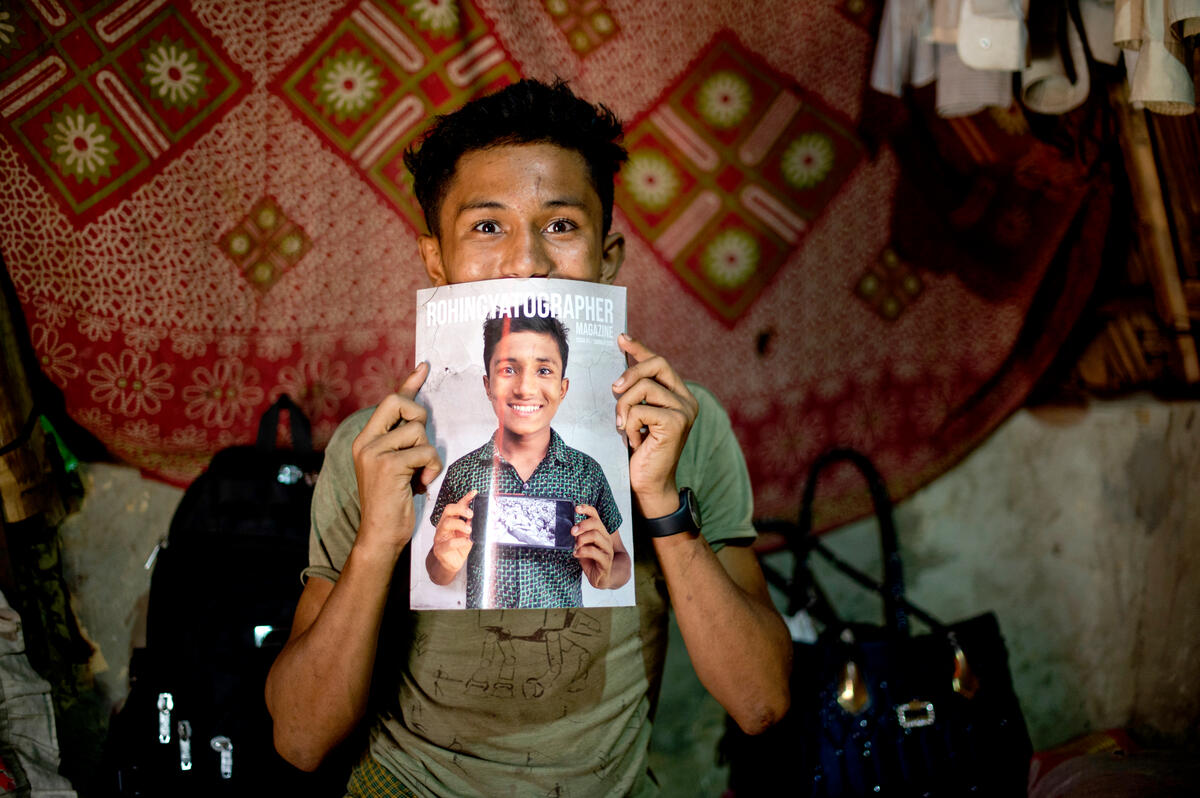UNHCR fixes homes to help Lebanese and refugees weather crisis
UNHCR fixes homes to help Lebanese and refugees weather crisis

In the small town of Sarafand, halfway between the ancient Phoenician ports of Sidon and Tyre on Lebanon’s Mediterranean coast, Aliyah, a Lebanese single mother of four, felt powerless as the stable life she once knew crumbled around her – literally, in the case of her dilapidated home.
Aliyah became the family’s sole provider after her husband died four years ago, selling small bracelets and necklaces that she made herself to scrape by.
But amid a crippling economic crisis in Lebanon that has sent the price of basics soaring and led to shortages of food, fuel and medicine, Aliyah lost even this small lifeline. Their only income was the meagre wages her eldest son Ali made working as a delivery boy for a nearby coffee shop, until he too recently lost his job.
“I rely on the help of my neighbours, who provide me with medicines, food and money to survive,” Aliyah said. “My son Ali was the only provider in the family, but his income alone was not enough to make it.”
"The house we live in is in a dire condition."
A medical condition affecting her circulation recently resulted in Aliyah having one leg amputated. Confined to a wheelchair, her mobility was severely restricted in the house, which – with no money for renovations – was hard to get around and fell into disrepair due to leaks and damp that caused parts of the walls and ceilings to collapse.
“It is hard enough to struggle to put food on the table, but it is even harder when you don’t feel safe in your own home,” Aliyah said. “The house we live in is in a dire condition with water leakages. Nothing in the house is a source of comfort.”
As a result of Lebanon’s economic meltdown, which according to the World Bank ranks among the worst economic crises globally of modern times, the Lebanese currency lost more than 85 per cent of its value. Prices have skyrocketed, and survival has become out of reach for many families.

As well as bringing suffering and misery to Lebanese families, the crisis has had a disastrous impact on more than 850,000 registered Syrian refugees hosted in the country.
The recent preliminary findings of a 2021 vulnerability assessment of Syrian refugees in the country found that 90 per cent are currently living in extreme poverty, unable to cover the full cost of food, medicine and other basics considered essential for survival.
This has led to a rise in food insecurity affecting half of all refugee households, while 60 per cent of Syrian families in Lebanon are now living in dangerous, overcrowded or substandard accommodation. The situation for Lebanese families is similarly desperate.
- See also: UN: Syrian refugees in Lebanon struggle to survive amid worst socioeconomic crisis in decades
In response, UNHCR, the UN Refugee Agency, is providing a range of vital assistance to the most vulnerable Lebanese and refugee families in the country, including cash assistance and essential household items, as well as providing support at municipal and community level.
Since 2011, US$309 million has been invested in Lebanon’s institutions and infrastructure to help ministries deliver public services to a wider population, including Lebanese and refugees.
This has included projects that bring much-needed infrastructure and equipment to Lebanese communities to mitigate the impact of hosting large numbers of refugees, as well as supporting Lebanese institutions and communities to better respond to COVID-19 and the 2020 Beirut Blast.
As part of its response, UNHCR is working to rehabilitate sub-standard homes with its partners INTERSOS, CONCERN, MEDAIR and Save the Children. The scheme supports landlords to fix roofs and walls to prevent leaks, repair plumbing and electrical systems, and – in the case of Aliyah’s home – make accessibility improvements to help her move around and be more independent.
"Lebanese and refugees in Lebanon are suffering immensely."
As well as making families safer and more secure in their homes and providing employment, the project also offers the building improvements free of charge to landlords in return for one-year rent-free guarantees for tenants, many of whom would otherwise be at risk of eviction.
“After the rehabilitation of my house, everything is different, everything is better now,” said a relieved Aliyah. Simple tasks such as washing her hands have been made easier thanks to being able to access the bathroom sink with her wheelchair.
Some 67,000 Lebanese and refugee families have benefitted from UNHCR’s shelter support in 2020 and 2021. This assistance also includes weatherproofing shelters in informal settlements, distributing shelter kits to reinforce homes against the elements; and providing rental subsidies to families at risk of eviction.
“Helping those most in need in having access to a safe home is a priority for UNHCR,” said Ayaki Ito, UNHCR Representative in the country. “Lebanese and refugees in Lebanon are suffering immensely and we must continue to stand by them in this very difficult time.”









